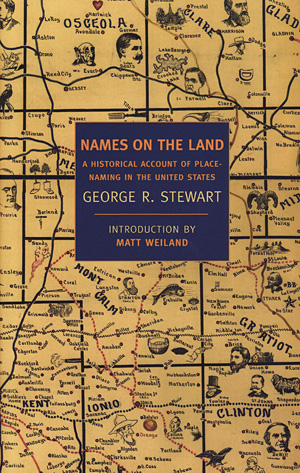
“A lexicographer has godlike powers,” wrote Guy Davenport in an an essay on America’s last and greatest such household deity, Noah Webster (1758-1843). Lexicographers, Davenport continued:
can, like Johnson, define Pope as “the bishop of Rome,” in grand dismissal of the word, or whig as “a faction.” He can omit noisome words, ride his hobbies (Webster defined democrat as “synonymous with the word Jacobian) [sic] in France”), and play not only tyrant but God himself creating the world.
In these final weeks before End Times are upon us; or, alternately, before we may reapply ourselves undistractedly to the enjoyment of the annual rotting of lifeless, colorless things unto the earth, we’re being subjected, daily, to definitions that none of us, no matter our ZIP code, likely well abides. New Hampshire, for example, which has the winning motto “Live Free or Die” and sobriquet “The Granite State,” has lately been called—along with Florida, Ohio, Colorado, et al—a battleground state. In 2004, it was slapped with the less bellicose and surely sweeter term of “swing” state.
Language takes the civic temperature as dependably as the back of a mother’s hand. These narrow, service-oriented definitions, like so many recent notional narrowings—hero; maverick; terrorist; socialist—drive me to distraction. This season’s most useful cure for a feeling I have three times a day to (rhetorically speaking) dive off my roof and disappear into the still colorful woods, is a book that takes as its task the expansion of our sense of what some of these states we live in were and are before they became nothing more than little levers to be yanked:
Once, from eastern ocean to western ocean, the land stretched away without names. Nameless headlands split the surf; nameless lakes reflected nameless mountains; and nameless rivers flowed through nameless valleys into nameless bays.
So begins George R. Stewart’s entirely diverting Names on the Land, recently reissued by New York Review Books. A compendium of nomenclatural gems that may be read with equal attention to its style, Stewart’s 1945 book was the work of a novelist pursuing an enthusiasm. I don’t know his novels, but plan on looking into this one. His writing in Names on the Land (which is to say his thinking) suggests time intelligently spent:
A war is always more than the battle-front, and so all over the colonies the wars affected the names. More and more towns and counties were named for governors and ministers of state. These men became symbols of national power and unity, although they were often little men in themselves.


